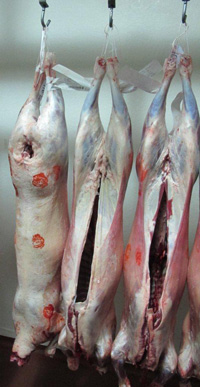Why should you give a Q?
Catherine James, Livestock Health and Biosecurity Officer, Victorian Farmers Federation

Q fever is an infectious disease to be aware of because it can cause serious illness in people. Although Q fever rarely causes clinical (obvious) disease in livestock, it can affect all people who are exposed to sheep, cattle and goats, and their products.
People at particular risk include:
- abattoir workers
- farmers
- agents
- stockyard workers
- shearers
- animal transporters
- anyone handling sheep, including veterinarians.
It is very easy for people to catch Q fever.
In some people, Q fever may present as a mild infection similar to flu. But the severity of the illness varies, and some people can develop serious symptoms involving the lungs, liver, heart or brain. About 10 per cent of people seriously ill with Q fever don't fully recover within 12 months.
Common symptoms of Q fever include:
- rapid onset of high fever and profuse sweats
- extreme fatigue, muscle and joint pain
- severe headache and photophobia (sensitivity to light).
The bacterium that causes Q fever can survive in air, soil, water and dust, and also on items such as wool, hides, clothing, straw and packing materials. Animals are infected by inhaling or ingesting contaminated materials — for example, ingesting urine, milk, faeces or afterbirth from infected animals.
People generally catch Q fever through:
- breathing or swallowing contaminated dust particles
- having contact with infected animal waste products
- having contact with soiled straw or wool
- handling infective placental tissue such as afterbirth
- consuming infected unpasteurised milk.
Q fever vaccination is highly recommended for people working in the livestock industry.
You can contact your local public health unit for more information on Q fever vaccination or checking your immunity status.
You can also help reduce the spread of Q fever by:
- washing hands and arms in soapy water after handling animals or carcases
- washing animal body fluids from work sites and equipment
- minimising dust and rodents in slaughter and animal housing areas
- keeping yard facilities for sheep and cattle well away from domestic living areas
- removing protective and other clothing that may carry infectious material before returning to the home environment
- properly disposing of animal tissues, including afterbirth.
For more information, please contact your local public health unit or call Agriculture Victoria on 136 186.